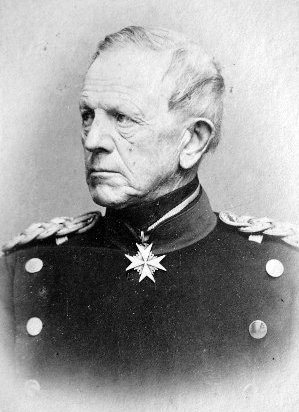Kein Operationsplan reicht mit einiger Sicherheit über das erste Zusammentreffen mit der feindlichen Hauptmacht hinaus.
"On Strategy" (1871)/"Über Strategie" (1871), as translated in Moltke on the Art of War: Selected Writings (1993) by Daniel J. Hughes and Harry Bell, p. 92; German collected in: Kriegsgeschichtliche Einzelschriften, H.13 (1890), hier zitiert nach: Militārische Werke, Band 2, Teil 2. Mittler & Sohn Berlin 1900. S. 291 books.google https://books.google.de/books?id=WHgvafaY1UIC&pg=PA291
Paraphrased variants:
No plan survives contact with the enemy.
Paraphrased in The Swordbearers : Studies in Supreme Command in the First World War (1963) by Correlli Barnett, p. 35
No battle plan ever survives contact with the enemy.
As quoted in Donnybrook : The Battle of Bull Run, 1861 (2005) by David Detzer, p. 233
Kontekst: The tactical result of an engagement forms the base for new strategic decisions because victory or defeat in a battle changes the situation to such a degree that no human acumen is able to see beyond the first battle. In this sense one should understand Napoleon's saying: "I have never had a plan of operations."
Therefore no plan of operations extends with any certainty beyond the first contact with the main hostile force.
Helmut Karl Bernhard von Moltke: Cytaty po angielsku
“Strategy is a system of expedients; it is more than a mere scholarly discipline.”
"On Strategy" (1871), as translated in Moltke on the Art of War: Selected Writings (1993) by Daniel J. Hughes and Harry Bell, p. 124
Variants:
War is a matter of expedients.
As quoted in "Nothing Went According To Plan" by Jim Lacey in TIME magazine (15 April 2003)
If in war, from the beginning of the operations, everything is uncertain except such will and energy as the commander carries in himself, there cannot possibly be practical value for strategy in general principles, rules derived from them and systems built up upon the rules. … Strategy is a system of expedients. It is more than science, it is the translation of science into practical life, the development of an original leading thought in accordance with the ever-changing circumstances.
As quoted in Government and the War (1918) by Spenser Wilkinson
As quoted in Prussia : The Perversion of an Idea (1994) by Giles MacDonogh, p. 166 The wordplay with wägen and wagen, weigh and venture ("ehe wäg's dann wag's") is much older than Moltke -->
Kontekst: Strategy is a system of expedients; it is more than a mere scholarly discipline. It is the translation of knowledge to practical life, the improvement of the original leading thought in accordance with continually changing situations.
Źródło: See The Jews https://books.google.com.br/books?id=t_RtAAAAMAAJ by Zuhdī Fātiḥ
